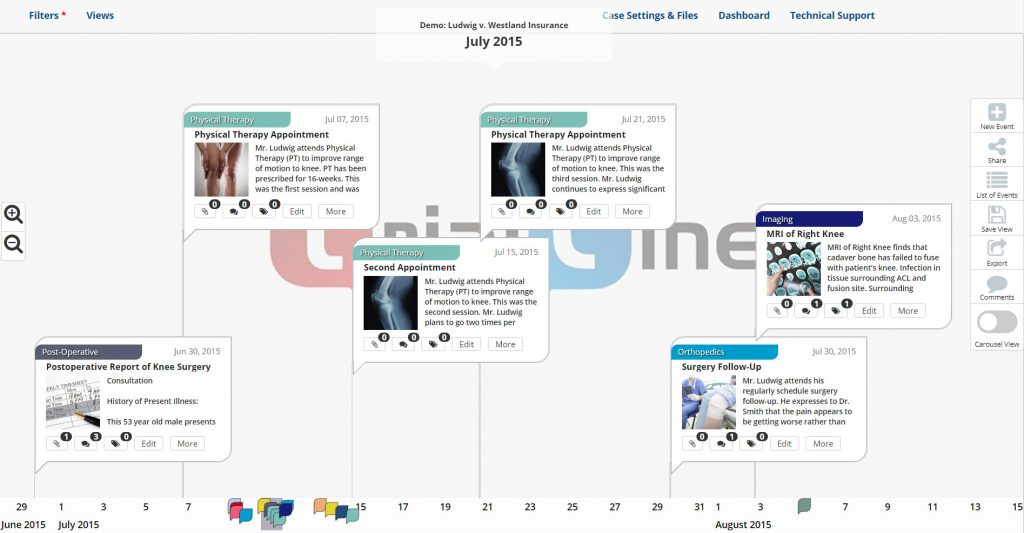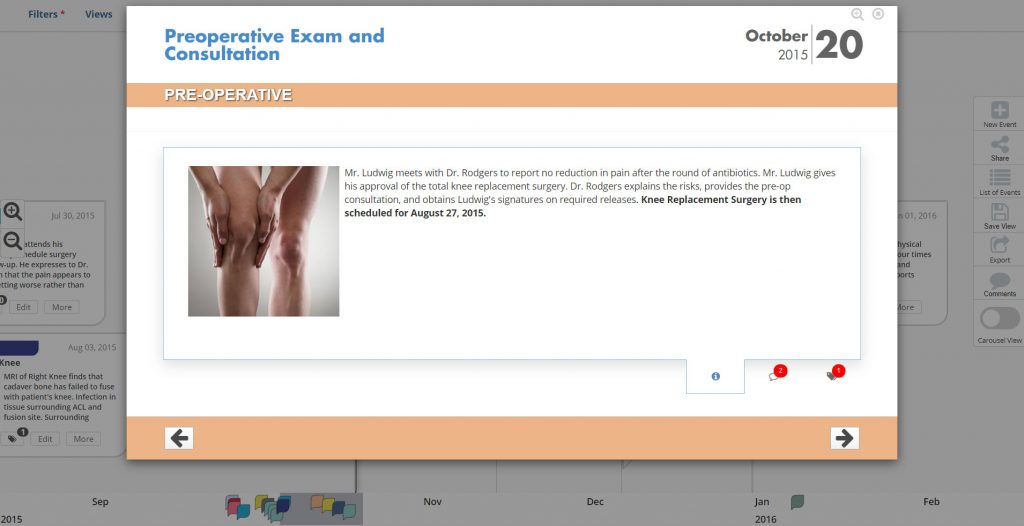Trial visuals and courtroom graphics can enhance your case and help you tell your client’s story in an interactive and captivating way. Creating a timeline is an effective way to do just that.
With TrialLine, you can organize your case data and maximize visuals at the same time. While most visual demonstrative evidence is expensive and time-consuming, TrialLine offers you a better way.
This stunning visual timeline tool helps law firms get more bang for their buck by giving them an efficient way to organize data and prepare stunning visuals for trial, at the same time.
Yet, before you get started, it is important to take the time to plan your timeline for effective and maximum results.

Brainstorming Your Visuals
Brainstorming can help you develop effective visuals for the court. During brainstorming sessions, you and your team can identify the critical aspects of your case and develop the visuals to accompany those aspects. A timeline can be one of those visuals. Brainstorming also makes it easy for you to communicate the purpose of each visual to the artists, and to the collaborators who may be creating these graphics and timelines.
The best part of brainstorming is that it allows each member of the team to contribute and do what they do best. As a lawyer, you have the knowledge and skills to digest evidence and create a powerful case. The artists and designers on your team can then take this evidence and create powerful sets of visuals to use in the courtroom during your trial.

Plan Your Next Brainstorming Session
If you are uncertain where to begin in your brainstorming session, consider following these steps and techniques:
Get Started and Focus
Tell the members of your team to expect to brainstorm for several hours of the day. Focus exclusively on demonstrative evidence and not on other aspects of the trial. By focusing your efforts, you can laser in on what visual evidence might be critical to the case. Invite everyone to the session, including senior members of the trial team and graphic designers.
The goal of this session should be clearly stated: to develop a list of demonstrative evidence ideas. You will not be designing the graphics or visuals at this time. Focusing on the list of ideas is critical at this early stage of brainstorming and can help reduce the overall costs associated with preparing for the trial.
Prepare Outline and Documents
To facilitate an efficient session, prepare an outline ahead of time to organize ideas. This outline should list all case issues to help ensure that critical items are not forgotten. You want to be sure you are developing ideas for all case issues. This will also help participants understand better the key areas of the case.

Record and Document
Assign the task of documenting the brainstorming session to one member of the team. This team member should make a record of the proceedings that can be shared with the group via computer or projector. As the meeting continues, attendees can see the items being discussed and better contribute to the session. Organize this record in a spreadsheet to include the columns that might help you organize the data, as well as solutions and ideas.
Evaluate Ideas
Once you and your team have brainstormed ideas regarding demonstrative evidence, it is important to evaluate those ideas. Evaluate the potential impact each idea might have on a potential juror. Discuss your team’s ideas with the graphic designers and get estimated costs. These costs should include production and design costs to create the visuals. In addition, evaluate how long it will take to create these graphics and visuals for trial.
Let TrialLine Make Stunning Visuals For Your Case
 TrialLine can help law firms organize their case data, collaborate and share evidence with colleagues and build stunning timelines at the same time. These timelines can help you “show” your client’s story in court in a way that helps jurors understand the case better. To learn more about TrialLine, call us today!
TrialLine can help law firms organize their case data, collaborate and share evidence with colleagues and build stunning timelines at the same time. These timelines can help you “show” your client’s story in court in a way that helps jurors understand the case better. To learn more about TrialLine, call us today!

